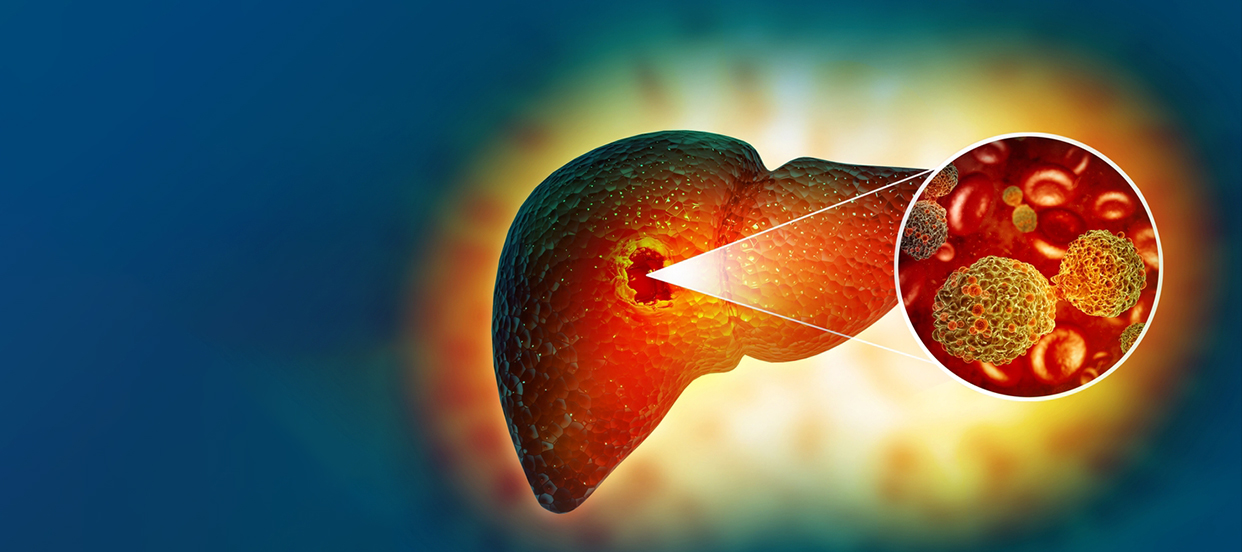
Liver cancer represents a significant global health challenge, ranking as the sixth most common cancer worldwide. Its often asymptomatic nature in early stages underscores the importance of understanding its symptoms, risk factors, stages, and treatment options for effective management and improved patient outcomes.
In its early stages, liver cancer often presents no noticeable symptoms, making early detection challenging. As the disease progresses, individuals may experience:
These symptoms can be associated with various conditions, so it's essential to consult a doctor for an accurate diagnosis.
Read Also: How much does Liver Cancer Treatment Cost in Pune?
Several factors can increase the risk of developing liver cancer:
Understanding these risk factors is vital for prevention and early detection.
Read Also: 6 Early Signs of Liver Damage
Liver cancer is categorized based on its origin within the liver:
Each type varies in its development, symptoms, and treatment approaches.
Read Also: What are the Symptoms of Liver Failure?
Diagnosing liver cancer involves several steps:
Early detection through regular screenings, especially for high-risk individuals, can significantly improve treatment outcomes.
Read Also: What Is The Role Of The Liver In Digestion And Metabolism?
Liver cancer staging determines the extent of cancer spread and guides treatment decisions. The stages include:
Understanding the stage of cancer is crucial for determining the most effective treatment plan.
Read Also: Fatty Liver Disease: Grades, Causes, Types, Symptoms & Treatment
In advanced stages, liver cancer symptoms become more pronounced:
These symptoms indicate extensive disease progression and require immediate medical attention.
The therapeutic approach for liver cancer is tailored to the specific stage of the malignancy, the patient's existing liver function, and their overall health status. Surgical resection, involving the removal of a portion of the liver containing the tumor, is a viable option for cancers detected in early stages.
Liver transplantation, the surgical replacement of the diseased liver with a healthy donor liver, may be considered for select patients meeting specific criteria. Ablation therapies, such as radiofrequency ablation or cryoablation, are techniques employed to directly destroy cancerous cells.
Embolization, a procedure designed to block the blood supply to the tumor to impede its growth, is another treatment modality. Targeted therapy, involving the use of drugs that specifically target cancer cell mechanisms, may also be utilized.
Preventing liver cancer involves addressing the known risk factors associated with its development. Vaccination against hepatitis B is a highly effective measure to reduce the risk of liver cancer by preventing infection with the hepatitis B virus. Given the absence of a vaccine for hepatitis C, prevention of HCV infection relies on avoiding behaviors that can transmit the virus, such as sharing needles or engaging in unprotected sexual activity.
Moderation in alcohol consumption is crucial, as excessive alcohol intake is a major cause of liver damage and increases the risk of liver cancer. Maintaining a healthy body weight through regular physical activity and adherence to a balanced diet is also essential, as obesity is linked to non-alcoholic fatty liver disease. Avoidance of exposure to aflatoxins, which can contaminate improperly stored grains and nuts, is another important preventive measure.
The outlook for liver cancer patients varies based on the cancer's stage at diagnosis and overall health:
Early detection significantly improves the prognosis, underscoring the importance of regular screenings for high-risk individuals.
Liver cancer continues to pose a formidable challenge to global public health. Raising awareness about its symptoms, promoting understanding of the associated risk factors, and advocating for widespread adoption of effective prevention strategies are essential steps toward mitigating the impact of this devastating disease. Regular medical check-ups and prompt attention to any potential symptoms are critical for facilitating earlier detection and maximizing the potential for successful treatment outcomes.
Q1: Is liver cancer common?
A: It's the sixth most common cancer worldwide, so it's a significant health concern.
Q2: Is liver cancer the same as cirrhosis?
A: No, but cirrhosis (severe scarring of the liver) increases your risk of getting liver cancer. Cirrhosis isn't cancer itself, but it can lead to it.
Q3: Can you have liver cancer without any symptoms?
A: Yes, especially in the early stages. That's why knowing the risk factors and getting regular checkups are important.
Q4: What are the early signs of liver cancer?
A: Often, there aren't any noticeable signs early on. This makes it tricky to catch early.
Q5: What are the later symptoms of liver cancer?
A: Later on, you might experience weight loss without trying, loss of appetite, pain in your upper right belly, tiredness, a swollen belly, yellowing of your skin and eyes (jaundice), and pale-colored stools.
Q6: Am I at risk if I don't drink alcohol?
A: You can still get liver cancer even if you don't drink. Other risk factors, like hepatitis or fatty liver disease, are important to consider.
Q7: Is liver cancer hereditary?
A: Sometimes, inherited conditions can increase the risk, but often, it's related to other factors like infections or lifestyle.